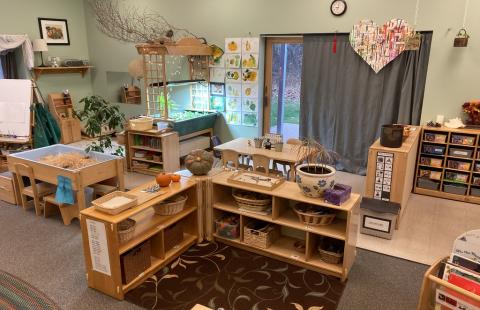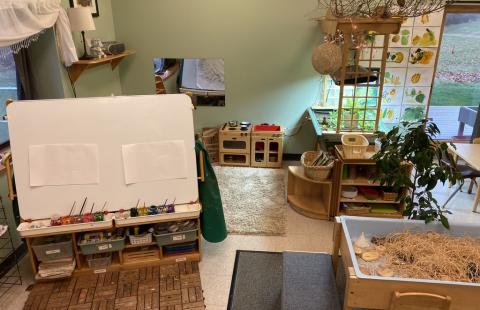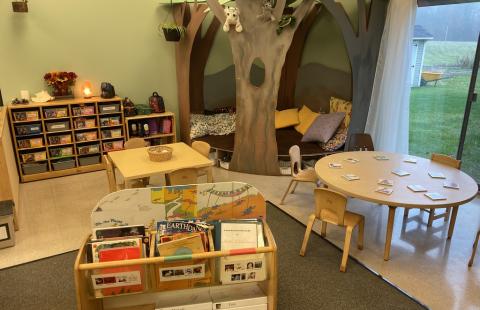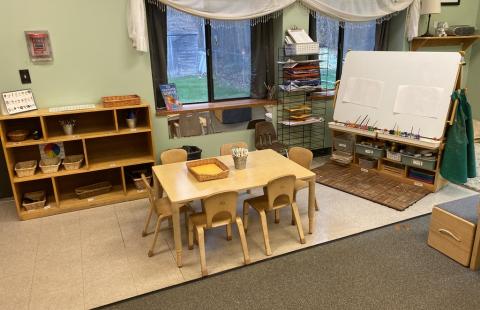16 children turning 4 years by September 30th with 2 full-time teachers.
Preschool 2 Family Packet
A Classroom Family Packet will be sent to you in August, containing information from your child’s teachers about the philosophy, schedule, curriculum, and classroom practices of the classroom that builds on to the CSDC Family Handbook.
Classroom Teachers
This is a general schedule of our day, especially as we focus on an emergent/multidisciplinary curriculum. We maintain flexible transitions as children's engagement in an activity or game might extend the length of centers or outside play.
| Time: | Activity: |
|---|---|
| 7:30 | Arrival/Open Choice |
| 9:00 | Snack |
| 9:30 | Gathering |
| 9:50 | Provocations |
| 10:40 |
Outdoor Exploration |
| 12:00 | Lunch |
| 12:40 | Group Story |
| 1:00 | Rest |
| 1:30 | Quiet Choices |
| 2:45 | Snack |
| 3:15 | Outdoor Exploration (transition inside depending on weather and light) |
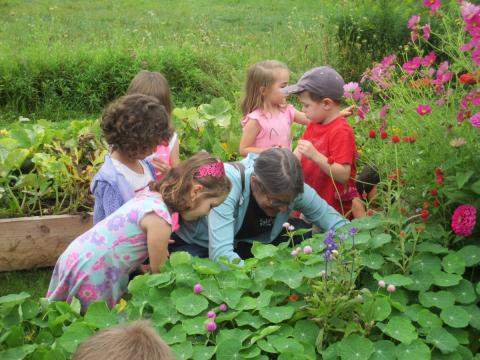
Our philosophy of educating young children is based on our collective belief that children are competent, proactive, resourceful, capable, and intelligent individuals eager to share themselves and experiences from the world. We strive to create culturally enriching experiences for children in a safe, supportive, respectful, and challenging environment. We believe children learn best when they collaborate through peer interactions, the environment, and teacher/child exchanges.
Teachers create rich experiences to facilitate the discovery and extension of children's knowledge. We focus on understandings that are relevant, meaningful, committed to extending the "teachable moment" and that come from a balance between teacher-initiated and child-initiated activities.
To appreciate the uniqueness of individual children we foster competence in young children by understanding the capability of interests in each child as we support their physical, cognitive, emergent literacy, creative expression, and social emotional development. We confirm their learning in a social context through collaboration, relationships, involvement using actual experiences and the project approach (emergent curriculum).
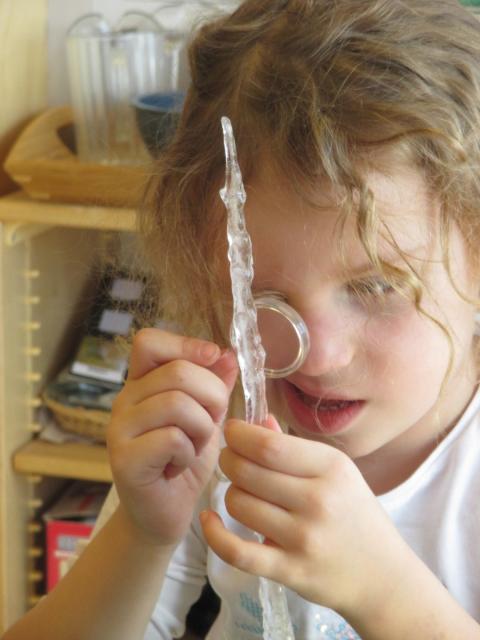
Opportunities are provided to create a dynamic
learning environment. Thoughtful consideration is made as the room design and materials are purposefully arranged and selected to encourage children to experiment and learn from those explorations. By preparing the environment, we ask thought provoking questions to support and extend each child's intrinsic motivation to learn and discover. We facilitate these discoveries through the incorporation of the creative arts, blocks, dramatic play, language, books, literacy experiences, music, manipulatives, sand and water play, the light table and the outdoors. We also proide a diverse array of materials including natural materials (shells, wood, rocks), wire, clay, collage, acrylics, watercolors, and recyclables (various collections). The possibility of children using an assortment of materials allows children multiple ways to represent, document, revisit, construct, and make meaning of their knowledge and questions.
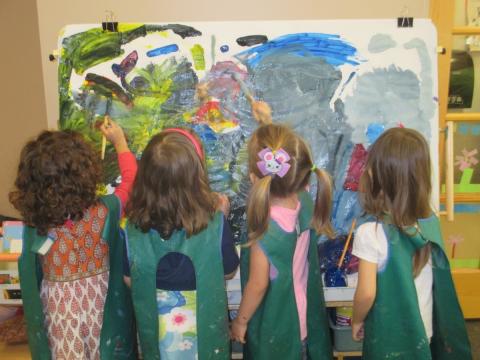
Children are invited to interact, collaborate, and negotiate
different perspectives, in order to enhance their emotional responses and support the development of pro-social relationships. Children's respectful behavior for each other and the environment is fostered by supporting children's development of self-worth, pride in work, acceptance of other's work, and respect for differences as they continue to become autonomous.
Our objective is to guide children as they continually practice
expressing emotions, developing empathetic behaviors, learning
appropriate pro-social strategies for entering and maintaining play
situations, practicing conflict resolution, and strengthening
self-discipline and self-confidence. In providing a respectful and
empathetic environment we intend to develop a community of learners, who care for one another.
Finally, we are committed to ensuring that the children, families
and teachers act as collaborators. Communication and feedback is
encouraged daily through opportunities to share information in the
morning, the afternoon, on the phone, at family conferences, in bi-monthly curriculum updates, community events, and during home visits. Journey books and developmental narratives are recorded documents that further facilitate the exchange of information on each child.


